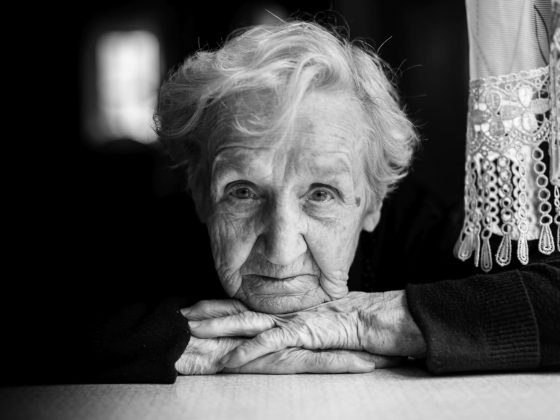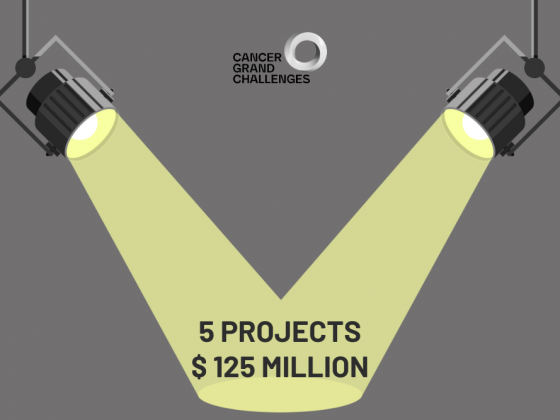Survivors of childhood cancer are at a significantly higher risk of death following a major cardiovascular event than the general public. The study, published in the Journal of the American College of Cardiology 27 February, found risk of death after a major cardiovascular event in a 30-year-old who had previously been treated for cancer as a child was equivalent to that in a 50-year-old in the general population.
“Untreated risk factors have a larger impact on risk for death following a serious heart event among survivors of childhood cancer relative to the general population, and therefore we shouldn’t just assume that because someone is young they don’t need risk factors like high blood pressure or high cholesterol treated,” says Wendy Bottinor, the lead author from the Virginia Commonwealth University Health Pauley Heart Center, in Richmond, Virginia.
Although it is known that childhood cancer survivors have a higher burden of cardiovascular-related morbidity, less is known about mortality after the first major cardiovascular event among childhood cancer survivors compared with noncancer populations. Many of the existing studies do not differentiate between cancer survivors based on age at cancer diagnosis, or they exclusively examine survivors of adult-onset cancer. In 2020, the Childhood Cancer Survivors Study, published in Cancer, demonstrated an increased risk for all-cause mortality after stroke among survivors of childhood cancers, but did not quantify risk after other major cardiovascular events. “Age at cancer diagnosis does influence risk, likely due to the immature/developing heart being more vulnerable than the adult heart,” Bottinor tells Cancerworld.
In the current study, Bottinor and colleagues aimed to address gaps in knowledge using two separate cohorts that allowed them to compare all-cause and cardiovascular-specific mortality risks after heart failure, coronary artery disease or stroke, between survivors of childhood cancers and people who had not suffered childhood cancers.
First, they analysed data from the Childhood Cancer Survivor Study (CCSS), a retrospective cohort of 25,658 long-term survivors (≥5 years) of paediatric cancer diagnosed between 1970 and 1999, who were under 21 years at time of diagnosis. To serve as a comparator, closest-age siblings of a random sample of survivors were recruited (n=5,051). They then used the Coronary Artery Risk Development in Young Adults (CARDIA) study, a racially diverse cardiology database of 5,114 young adults aged 18 to 30 years in 1985 to 1986, which was established to gain insights into development of heart disease.
The index event was the first major cardiovascular event occurring five or more years after cancer diagnosis for cancer survivors, and the first occurrence of any major cardiovascular event in CCSS siblings and CARDIA participants.
Among the 25,658 childhood cancer survivors evaluated in the CCSS study, the median age of cancer diagnosis was seven years, and the most common cancer diagnoses were leukaemia (40.1%), lymphoma (17.6%), and other solid tumours (20.1%). Treatments included anthracyclines (53.15%), radiation of a field involving the heart (49.8%), and brain radiation (28.3%).
Results from the CCSS cohort showed 1,780 childhood cancer survivors and 91 siblings suffered a cardiovascular event. The study found that suffering a cardiovascular event was associated with a higher subsequent risk of dying from any cause among CCSS survivors than siblings. For heart failure the hazard ratio (HR) was 7.32 (95%CI 2.56–20.89); for coronary artery disease it was 5.54 (95%CI 2.37–12.93); and for stroke it was 3.57 (95%CI 1.05–13.02). Furthermore, mortality specifically from coronary artery disease was higher in CCSS survivors than siblings (HR=3.70; 95%CI 1.05–13.02).
Results from CARDIA showed that 345 participants had a major event. Although CARDIA participants were decades older at the index event than the childhood cancer survivors (median age 57 years vs 31 years), mortality rates were similar for heart failure and stroke, except that all-cause mortality after coronary artery disease was significantly increased among childhood cancer survivors (HR=1.85; 95%CI 1.16–2.95).
The similarity between the two groups, write the authors, suggests that the mortality risk among childhood cancer survivors equates to that in individuals in the general population who are more than two decades older. “This observation is supported by previous studies demonstrating an accelerated ageing phenotype among survivors of childhood cancer,” they add.
In an effort to identify some potential solutions, the team found that pre-existing dyslipidaemia (an imbalance of lipids) was associated with a lower risk of all-cause mortality after heart failure (HR=0.49) and coronary artery disease (HR=0.43). “Overall, there seemed to be a potential protective effect of pre-existing hypercholesterolaemia. We suspect this is likely related to the use of statins among individuals with hypercholesterolaemia,” says Bottinor. There is evidence, she adds, that statins preserve cardiac function in the setting of anthracycline-based chemotherapy.
The pre-existing dyslipidaemia finding led investigators to suggest that universal use of statins in childhood cancer survivors, instead of only in those with heart problems, might provide increased protection against cardiovascular complications in later life.
Additionally, hypertension was also associated with increased risk of heart-related death in childhood cancer survivors. “We probably should be lowering the bar for treating hypertension when we’re talking about survivors of childhood cancers, because their risk for heart disease is so much higher than the general population,” says Bottinor.
Current American College of Cardiology/ American Heart Association guidelines for hypertension and blood cholesterol do not take cancer diagnosis or treatment history into account when determining individual risk for cardiovascular disease. “Given the increased burden of mortality among survivors who develop cardiovascular disease, more aggressive risk factor modification may be appropriate for this population,” write the authors.
“Ideally, guidelines addressing management strategies for cardiovascular risk factors, such as hypertension and hyperlipidaemia, will recognise that a history of cancer diagnosis is a risk factor for cardiovascular disease. Therefore, the threshold for treatment should be lowered, even for young survivors who are otherwise healthy,” says Bottinor.
Looking ahead, says Bottinor, clinical trials are needed to investigate whether risk factor modification impacts cardiovascular outcomes of survivors of childhood cancers. Currently, the team are developing a clinical trial to understand which medications are most effective at treating heart failure among childhood cancer survivors.
In an accompanying editorial, Lavanya Kondapalli (University of Colorado), Linda Overholser (University of Colorado), and Carrie Lenneman (University of Alabama), underline the inadequacy of current guidelines. “Since the median age of first CV [cardiovascular] event in CCSS survivors in Bottinor et al was 31 years, we should be screening early for CVRFs [cardiovascular risk factors]; however the current U.S. Preventive Services Task Force guidelines do not recommend routine screening for lipid disorders before 20 years of age. Once we have identified a CVRF-like hyperlipidemia, there is little guidance on management,” they write. The editorialists quote the example of the atherosclerotic cardiovascular disease risk calculator, which is not valid in patients under 40 years, and therefore gives no guidance on how to best treat cancer survivors in their 20s with elevated lipids. “The data are clear that the burden of CV risk and disease is high in childhood cancer survivors – the onus is now on us to do something about it,” they write.












